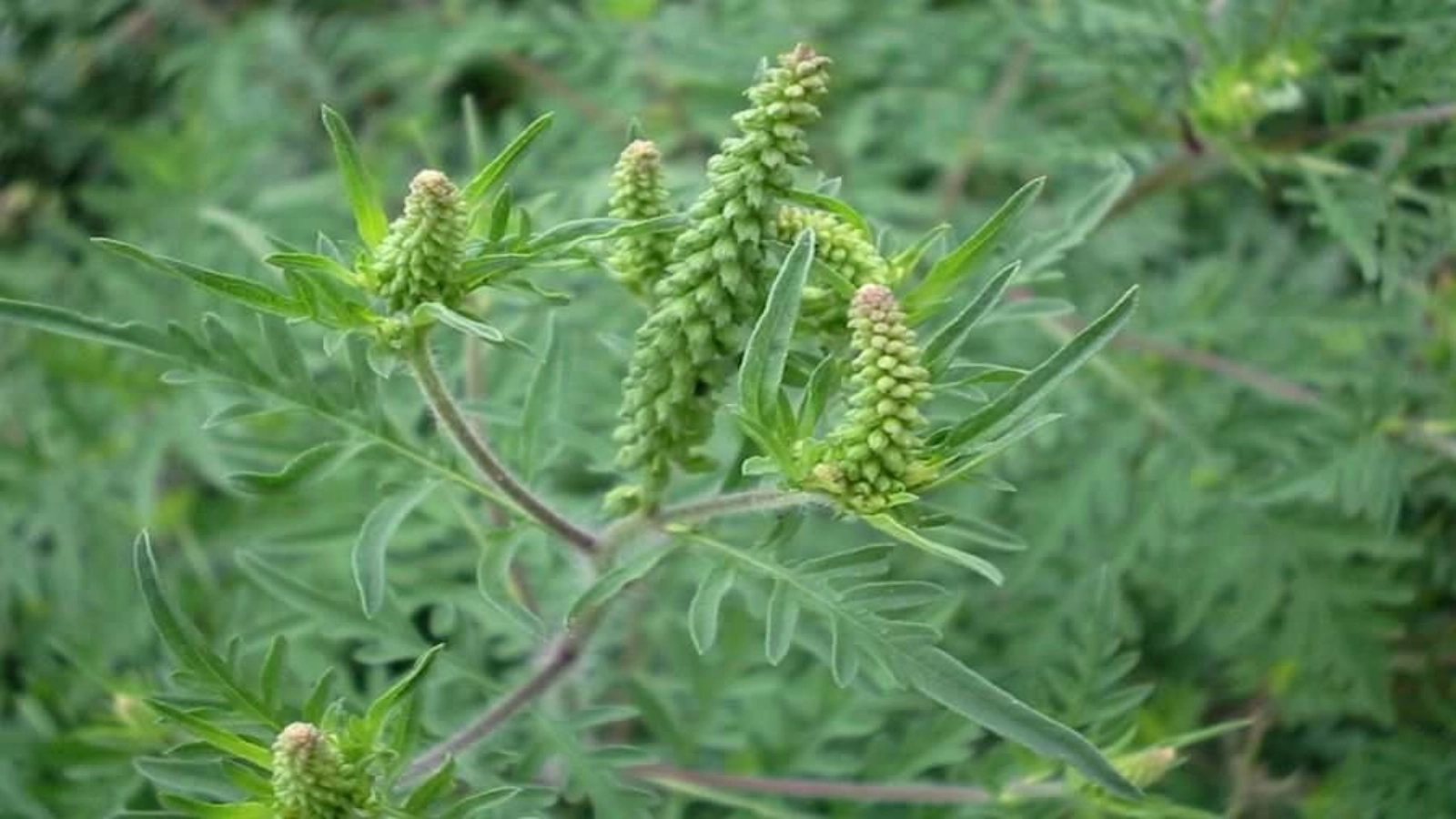Several dozen people, including specialists and people allergic to ragweed pollen on Sunday staged a protest at Kiseleff Park, Bucharest City, to draw attention to the fact that the law on combating the effects of ragweed in not enforced yet.
The event "Do you know what ragweed looks like?" is part of an information campaign dubbed "Life without ragweed" designed to raise awareness over the importance of applying Law 62/2018. Organisers estimate that about 6 million people in Romania are exposed to ragweed pollen.
"We have gathered here to show the law enforcers that we exist, that we are many and that ragweed allergy hurts. It is their duty to make the citizens of this country live a peaceful life. We have come to make public pressure to get the law enforced. Because the law is not enforced yet, thousands of Romanians every year become patients after discovering their allergy to ragweed. The Ministry of the Environment, the Ministry of Health and the Ministry of Agriculture should carry out information campaigns on the effects of this weed. It is not some fuss or trend; it is pain for the people allergic to the ragweed. Three months we leave home with a mask on or we lock ourselves in our own houses. A country where you have to lock yourself in your home because of some weed is a wrong country. Because the law in force is not enforced, thousands of Romanians every year become patients after discovering they are allergic to ragweed," said organiser Ionela Nastase.
Allergist Adriana Nicolae explained that the patients allergic to ragweed pollen are given "a very large dose of medicines" because their respiratory system and skin are simultaneously affected.
"We need to understand that this weed needs to be cut out. We should regain our civic and household sense," said Nicolae.
Under Law 62/2018, in order to destroy the ragweed and prevent its spread, land owners, administrators of public roads, railways, watercourses, lakes, irrigation systems and fish ponds will carry out periodically, before June 30 of each year, maintenance work on the land by mowing, picking, weeding or any other specific works and methods. These measures will be in place until the end of the ragweed season. Construction work owner are also under an obligation to take the necessary measures on the land subjected to the works to prevent the ragweed form taking root or spreading. Each owner, public or private, shall keep up their land to avoid it becoming derelict. The fines for failing to follow the ragweed rules range between 750 and 5,000 lei - in the case of individuals and between 5,000 and 20,000 lei, in the case of legal entities.
Ragweed is an invasive weed that grows on the sides of the roads, pastures, green spaces, but also in courtyards and parks, ruins and derelict places. It blooms in August-September. The pollen of this plant, carried by wind, causes allergic rhinitis, allergic conjunctivitis, asthma, contact dermatitis, especially in late summer - early autumn. A single mature plant can release up to 8 billion pollen grains and up to 30,000 seeds, which stays germinating for 40 years. Ragweed is the most allergenic plant in Romania and some people develop severe reactions to it.
Symptoms of ragweed allergiesinclude bouts of sneezing, red and tearful eyes after repeated bouts of itching, rhinorrhea, choking, sneezing, dizziness.
The organisers are faulting the law enforcers for not conducting public campaigns, as there are many who do not know what the ragweed looks like, and the number of people allergic to the plant has been on a constant rise.
The ragweed, scientifically known as Ambrosia, is a plant of that can grow up to 50-100 cm, sometimes even higher at maturity, with a highly developed pivoting root of 1.2 - 1.5 metres.
A pollen concentration in the air of less than 30 grains of pollen/m3 suffices to trigger an allergic reaction. Usually, pollen allergies are caused by exposure to ragweed pollen over several years (3-4 years). The plant reaches its maximum pollination in August-September, according to the organisers.
People rally in Bucharest over anti-ragweed legislation, say allergy to ragweed not fuss, but painful
București 15°C
15°C
Articole Similare

16
Middle East Crisis/Repatriation - evacuation flights planned, but open airspace required (Foreign Affairs spokesperson)
16

15
PM Bolojan: The more the Gulf crisis deepens, the greater the impact on fuel prices
15

9
Senate passes bill declaring 2026 as National Peasant Party Centenary Year
9

32
Romanian senior interior official, U.S. prosecutor discuss border security
32

22
DefMin Miruta meets European Parliament President Metsola
22

14
Ionescu(INFP):Seismic alert system can send warnings about 25 seconds before waves arrive in Bucharest
14

22
Coface Romania's Nichisoiu: Romania may become Europe's energy exporter, yet with no local demand
22

17
Serious road traffic accidents in Romania down 60pct from 2019
17

23
Bulgaria's National Day celebrated at the Romanian Parliament, the world's second-largest administrative building
23

13
CFA Romania president: Mideast conflict hits stock markets and interest rates, stronger impact if it drags on
13

27
ANCOM consults market on future use of 26 GHz, 42 GHz and 28 GHz frequency bands
27

14
World Obesity Day/College of Physicians president pleads for obesity combat programme
14

12
Livestream from Dumbravioara stork nests resumes 20 years after Romania's first such broadcast
12



















Comentează